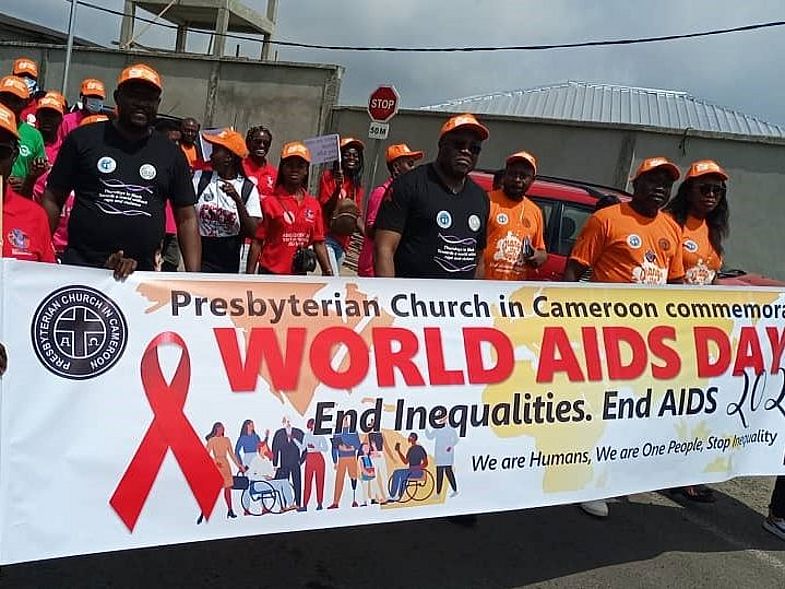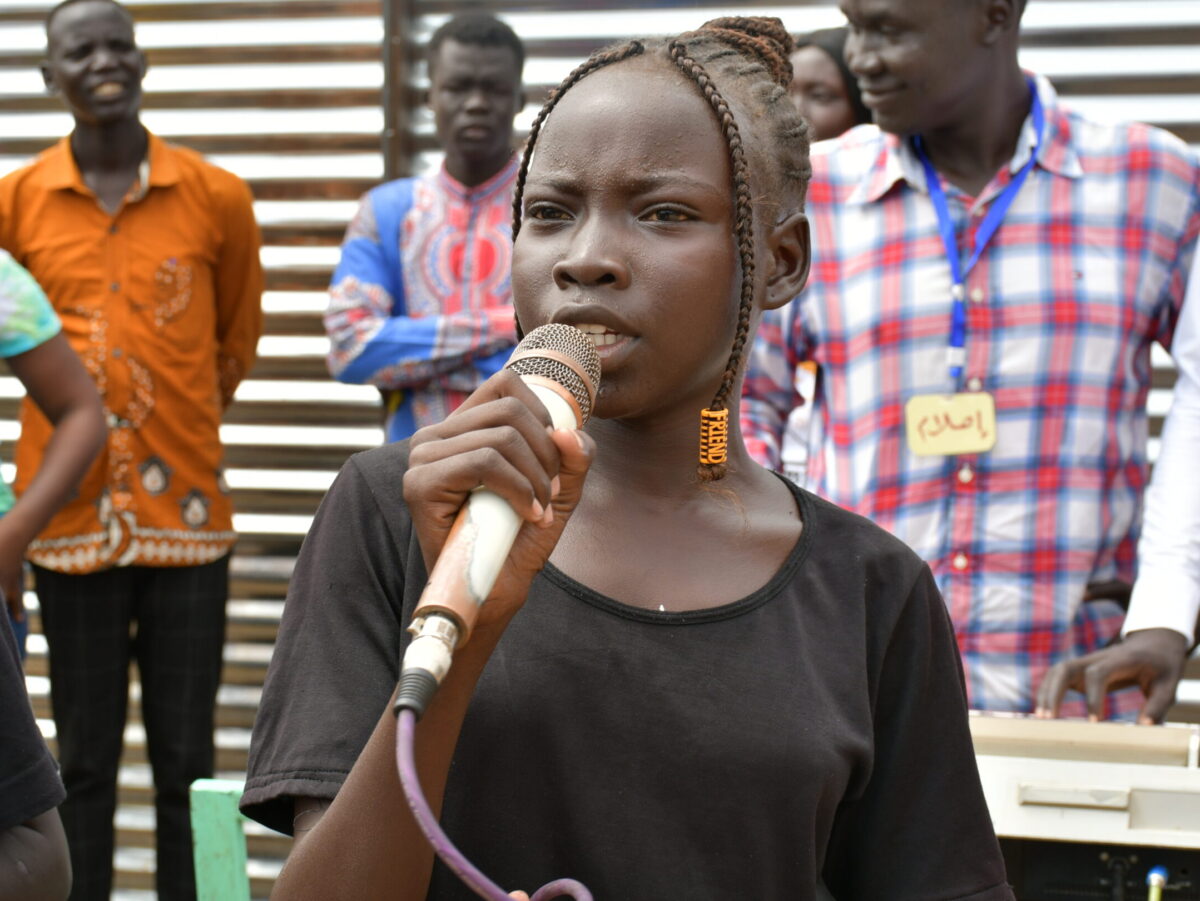When Emmanuel Kameni came to the hospital, all was not well. After a positive HIV test, his courage to face life had left him. "For me, the test was a death sentence," he recalls. He stopped going to work and subsequently lost his job and his apartment. He assumed he was going to die soon anyway, so he didn't seek treatment. He drank too much and lived with his two daughters in an unfinished building. Since he did not take any medication, he suffered from the negative consequences of his HIV infection.
The turning point for Emmanuel Kameni came when a counselor at the hospital in Douala approached him about his problems. The hospital is run by the PCC, Mission 21's partner church in Cameroon.
Half a million people are affected
Emmanuel Kameni is not alone in the first part of his story. UNAIDS estimates that approximately 500,000 people in Cameroon carry HIV. In a population of 26.5 million, that's almost two percent. Women and children are particularly at risk of infection. Women are more often victims of sexual violence than men, are more often involved in prostitution and account for more than two-thirds of those infected with HIV. The situation is particularly precarious in the English-speaking west of the country, where an armed conflict between rebels and the government has been raging since 2016. In this difficult and dangerous context, providing medical care to the population is a challenge that the state is often unable to meet.
Two hurdles: The cost and the lack of knowledge
Many people do not have access to HIV tests and therefore do not know whether they are carrying the virus. Those who know their HIV status, like Emmanuel Kameni, often do not have the financial means to seek treatment. Many people also lack the necessary knowledge about what an HIV infection means and what treatment options are available. Thus, many people like Emmanuel Kameni assume that a positive test means the end. Even when antiretroviral drugs are provided, regular visits to a hospital or health clinic are necessary, which involve transportation costs and are often dangerous for safety reasons.
Self-help group as a lifeline
The PCC is committed to the medical treatment of people living with HIV. It also combats discrimination against those affected and provides information on prevention and treatment options. For Emmanuel Kameni, the PCC's commitment was a saving anchor. The PCC counselor who approached him at the hospital educated him about the disease and treatment options, prescribed medication and encouraged him to join a self-help group. A short time later, one of Kameni's daughters, who tested positive for HIV, also received medication.
With the support of the PCC, Emmanuel Kameni succeeded in giving his life a new direction. He is now president of the local self-help group and works in a center for people living with HIV. There he counsels other HIV-positive people and, thanks to this work, is able to provide for his children.
Training people like Emmanuel Kameni is one of the most important activities in the PCC's awareness-raising work. The courses offered include topics such as sexual and gender-based violence, sexually transmitted diseases (including HIV), communication and counseling. They are attended by medical personnel, teachers*, members of women's and youth groups and other volunteers. The trained members of local communities can support HIV-positive people and educate the population about HIV. They reach a far greater number of people than would be possible through the professional staff of the PCC.
Educational work for young people
The PCC offers counselling for HIV-positive persons and victims of sexual violence, carries out HIV tests and provides medical support for those affected. In addition, educational work on the topics of sexual violence and sexually transmitted diseases is carried out in over 30 schools. Here and at the Freemind Center in Buea - a youth center where young people can deal with the subject of sexuality without pressure - young people are made aware of topics such as sexual violence and sexually transmitted diseases. This gives them the chance not to have to go through the same experience as Emmanuel Kameni as adults and to lead a healthy life.
Text: Frank Nydegger, Mission 21






